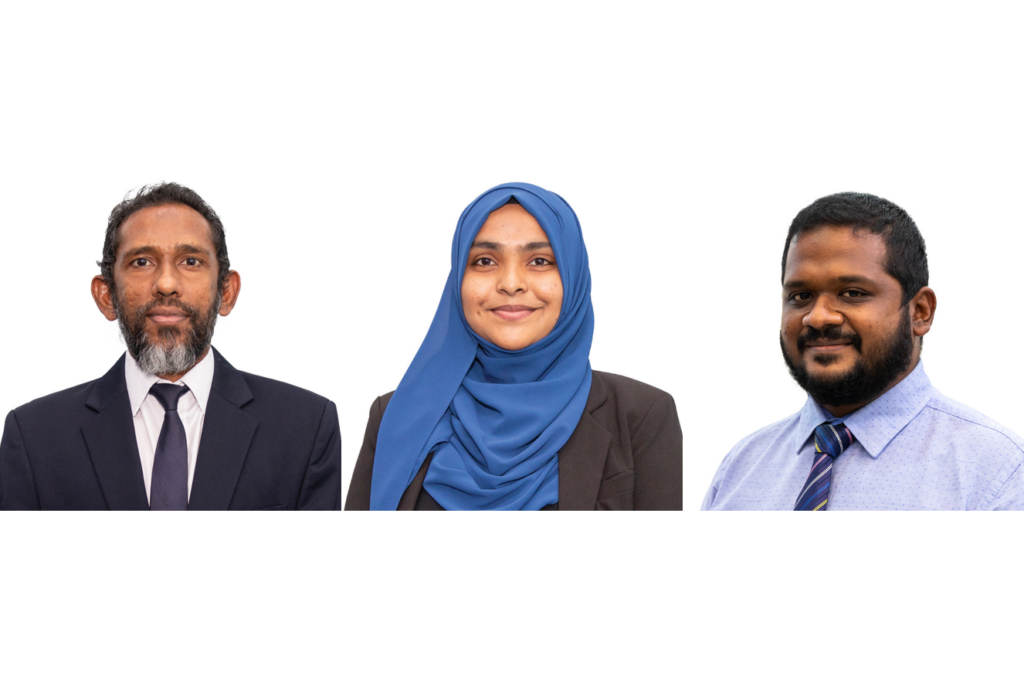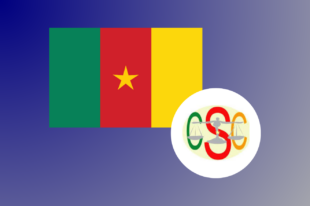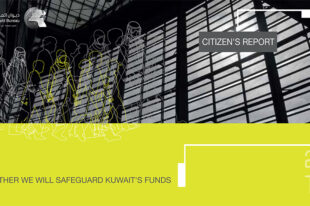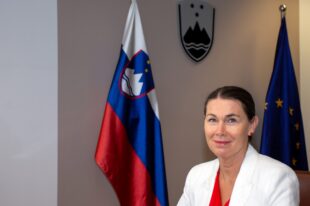Transformational Change in Environmental Auditing: Journey of SAI Maldives
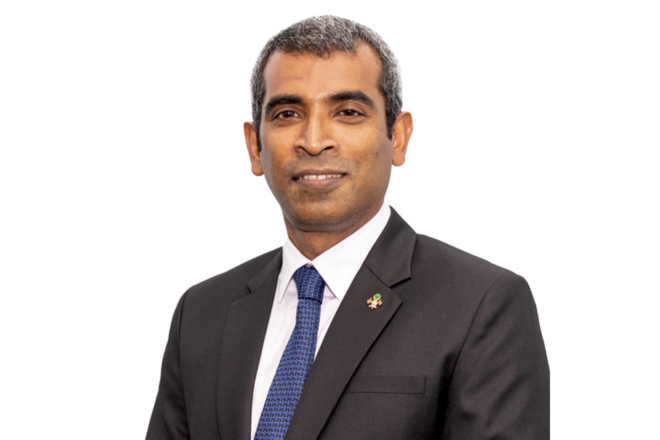
Lead Author: Hussain Niyazy – Auditor General of SAI Maldives and Vice Chair of INTOSAI WGEA
Co-Authors: Ibrahim Aiman – Assistant Auditor General, Performance and Special Audit Division; Rauhath Hussain – Director, Performance Audit Department; Mohamed Ibrahim Jaleel – Manager, Environmental Audit Unit
Introduction
From an aerial view, the Maldives appears as a dazzling pearl necklace, with its scattered islands forming intricate atolls in the Indian Ocean. Yet, the true heart of our nation lies beneath the surface—our extensive and vital reef system. Spanning 4,513 square kilometers, these reefs are the seventh largest globally, sustaining a diverse ecosystem of over 1,200 marine species. For our small island nation, these pristine waters, vibrant marine life, and sandy beaches are not just natural treasures but the backbone of our economy. Furthermore, our reefs act as crucial barriers, protecting our low-lying islands—80% of which are less than one meter above sea level—from the ocean’s relentless forces.
A Transformative Mission: Elevating Environmental Accountability
Despite their critical role, our reefs are deteriorating rapidly. This highlights the essential function of our Supreme Audit Institution (SAI) in ensuring environmental accountability. Our mission extends beyond maintaining economic stability; it encompasses safeguarding the future for generations to come. Confronted with severe climate change impacts—such as rising sea levels, ocean warming, acidification, and increasingly intense weather events—our SAI has embarked on a transformative journey to enhance its environmental auditing capabilities. We have conducted audits on coastal erosion, water management, disaster risk reduction, fisheries diversification, sewerage system management, and SDG preparedness. Our ongoing audits also cover biodiversity, waste management, climate change adaptation, and SDG implementation.
Hands-On Learning: From Theory to Field Experience
A core element of our strategy has been the recognition that effective environmental auditing demands more than theoretical knowledge. Our audit team, headed by an environmental expert and initially comprised mainly of accounting professionals with limited environmental expertise, underwent extensive practical field experiences. These included island-wide groundwater testing, unmanned aerial surveys, and assessments of diverse ecosystems. This hands-on experience has deepened our team’s understanding of environmental challenges and their impacts. The transition from desk-based roles to fieldwork has significantly transformed the team’s perspective, fostering a profound appreciation for the environmental resources they are tasked with protecting and enhancing their ability to tackle complex challenges. This shift has led to more informed interactions with technical personnel from audited entities and a strengthened engagement with environmental auditing.
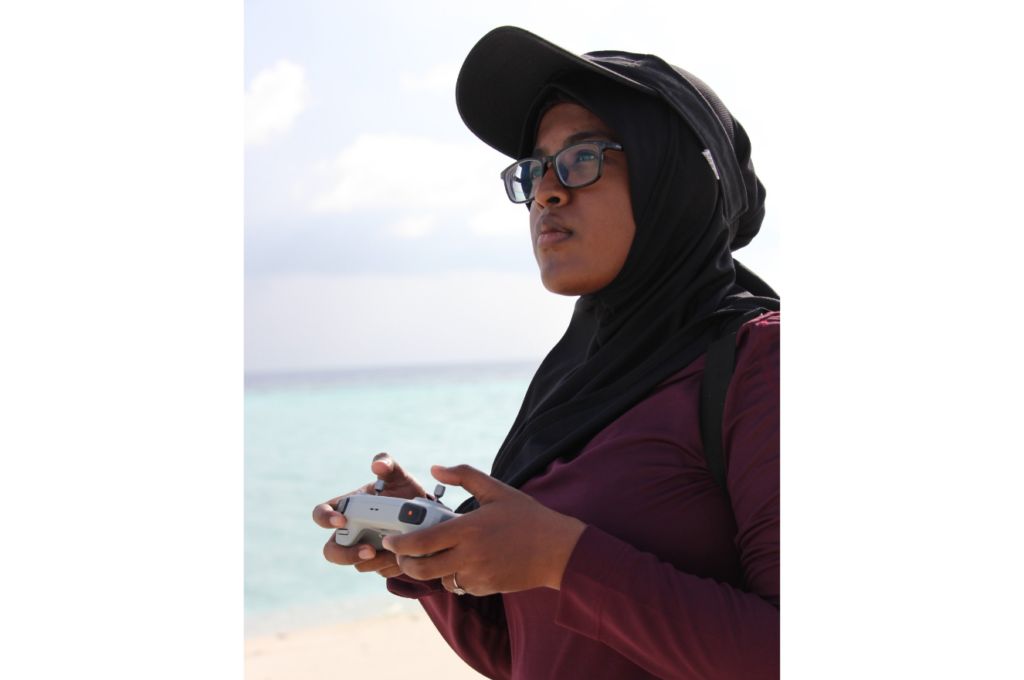
Community Integration: Expanding Audit Horizon
Community involvement in the audit process was limited prior to our strategic change. Our new approach integrated local youth as enumerators, involving them through a training-of-trainers (ToT) session. The youths were involved in conducting social surveys and public perception in the environmental performance audits. This inclusion expanded the scope and inclusivity of our audits, culminating in a report reflecting a comprehensive community perspective and marking a significant advancement in our audit practices.

Leveraging Technology: GIS and Data Analytics
To address financial constraints related to extensive physical exploration, we incorporated training in Geographic Information Systems (GIS) and data analytics. By leveraging an existing subscription to an online learning management platform, our team developed GIS expertise, which has been applied in audits to identify issues such as non-compliance with environmental impact assessments. This technical capability has enabled us to publish critical findings related to gaps between resource needs and implementation, risk assessment and environmental compliance in the performance audits of Fuvahmulah city water and sanitation project and Performance audit on dry season water supply in Maldives. Further, we are integrating this assessment even in our ongoing environmental audits.
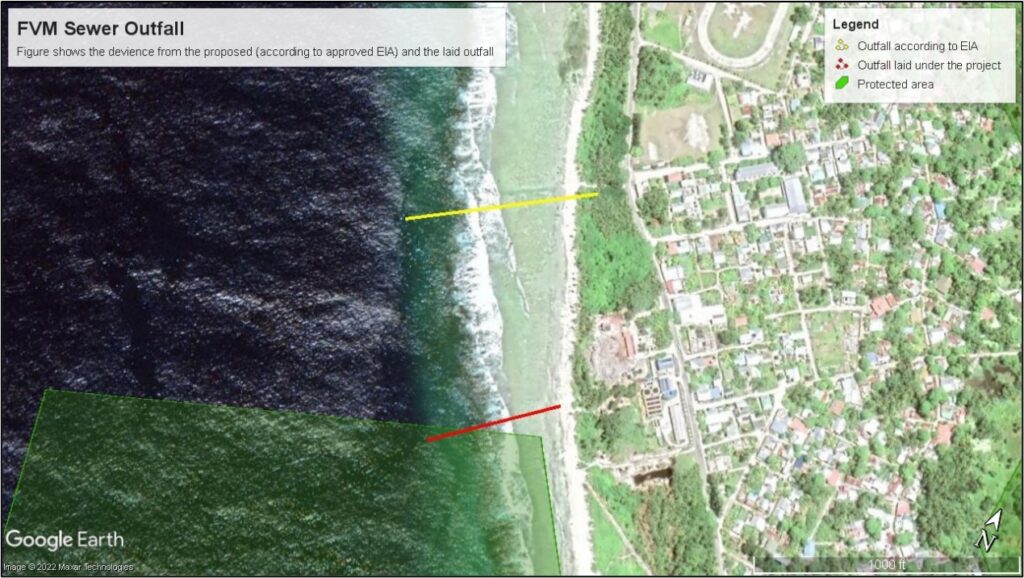
Future-Ready Auditing: Foresight Sessions and Internship Programs
Recognizing the need for ongoing relevance in our auditing practices, we conducted foresight sessions that exposed our team to emerging and critical audit topics through engagement with subject matter experts. These sessions informed our work plans, including topics like the decline of northern fisheries and Climate change adaptation planning. We also established an environmental internship program to connect with students in environmental fields. Feedback from interns emphasized the need for specialized environmental auditing education and suggested incorporating auditing modules into environmental management curricula.

Effective Communication: Raising Awareness and Sharing Knowledge
A crucial aspect of our strategy was effectively communicating audit findings to stakeholders, particularly the younger generation. We conducted multiple awareness sessions across various islands, adapting to challenges such as adverse weather by using online platforms. We also started submitting translated audit summaries to the INTOSAI Working Group on Environmental Auditing (WGEA) database, contributing to the international knowledge base.

Global Recognition: Embracing International Collaboration
Our commitment to addressing global challenges has been marked by our entry into the INTOSAI WGEA in 2022 and our hosting of its 21st assembly in the island Ukulhas, Maldives. This event underscored the urgent need for global resilience against climate change. We remain actively involved in INTOSAI WGEA work packages, such as climate scanner, climate change adaptation actions, and environmental accounting.
The success of our strategy has been made possible through the invaluable support of the Chair of the SAI Finland and other Supreme Audit Institutions (SAIs) on the steering committee of the WGEA. Their efforts in transforming the governance structure of the Working Group have enabled even less resourceful SAIs, such as Small Island Developing States (SIDS) like ours, to contribute meaningfully to its management. We are deeply appreciative of this support, which has been instrumental in our appointment to the role of Vice Chair of the INTOSAI WGEA by the Steering Committee. This role reflects not only our enhanced capabilities but also the collaborative spirit fostered within the international auditing community. As Vice Chair of INTOSAI WGEA, we are committed to representing Small Island Developing States (SIDs) perspectives in global discussions on environmental audit practices and sharing our experiences with other SAIs.
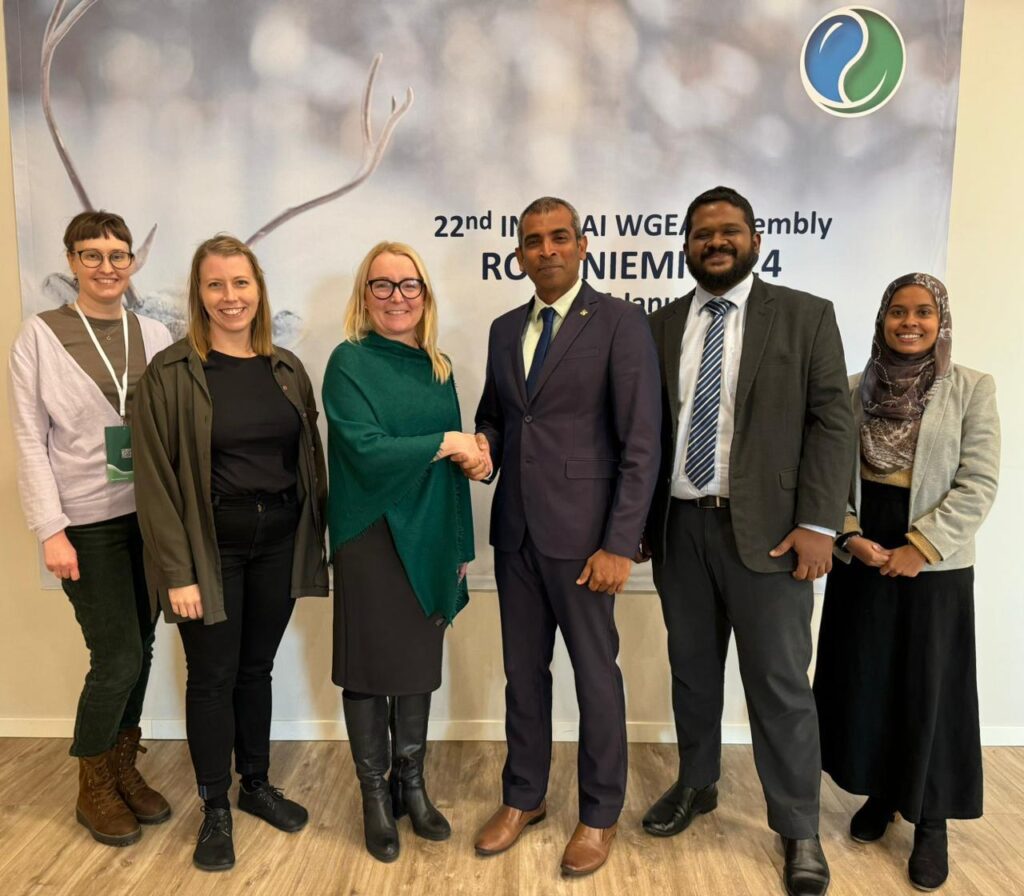
Our ongoing dedication to environmental auditing is further demonstrated through journal publications on related topics. Recent articles include “Auditing Plastic Waste: Case of The Maldives” in the Asian Journal of Government Audit and “Small Island Developing States and Climate Challenges: Perspectives from the INTOSAI WGEA, PASAI, and the Maldives” in the INTOSAI Journal.
Conclusion: A Commitment to Excellence and Global Impact
The strategic changes implemented by the Auditor General’s Office of the Maldives have significantly advanced our environmental auditing capabilities. By investing in team development, community engagement, and technical expertise, we have established ourselves as leaders in environmental audit practices. Our achievements highlight the effectiveness of our strategy and our transformative impact both internally and within the global auditing community. We would like to extend our gratitude towards the key stakeholders that enabled this transition, namely, the Chair of INTOSAI, SAI Brazil through bilateral support and emphasis on SIDs SAIs development, the Chair of INTOSAI WGEA, SAI Finland and the steering committee members of the working group, the Intosai Development Initiative through their SAI Young Leader program which facilitated critical components of the change strategy and SAI India through numerous capacity building opportunities and bilateral support.
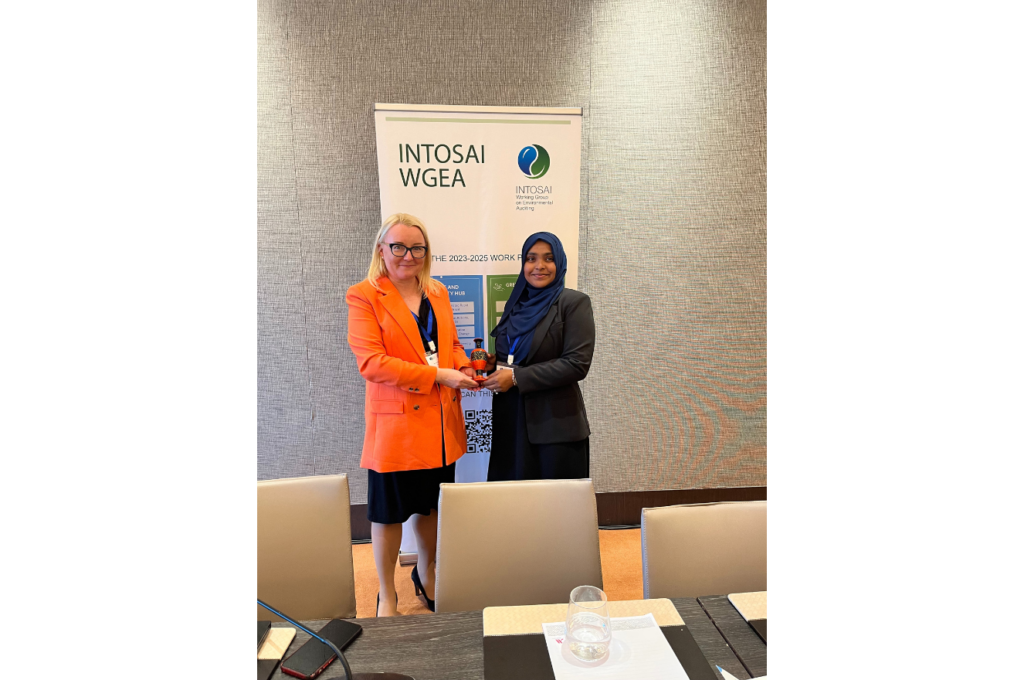
The recognition as Vice Chair of the INTOSAI WGEA is a testament to our enhanced role and unwavering dedication to advancing environmental auditing and accountability. It reflects our commitment to spearheading global efforts in this vital area, ensuring that our work continues to drive positive change and inspire action on a global scale.

